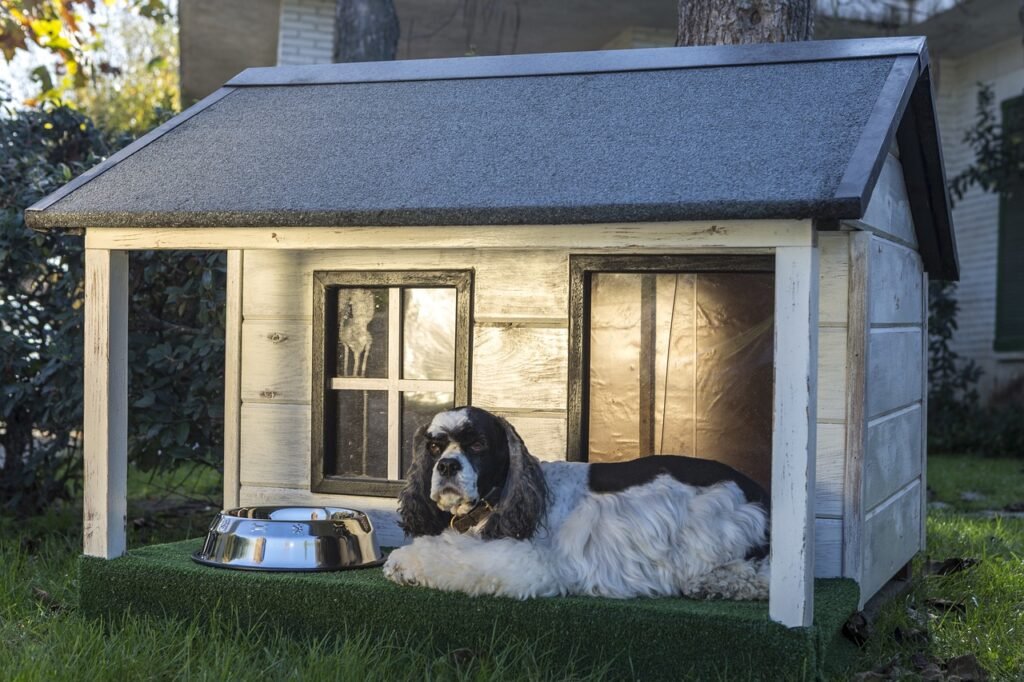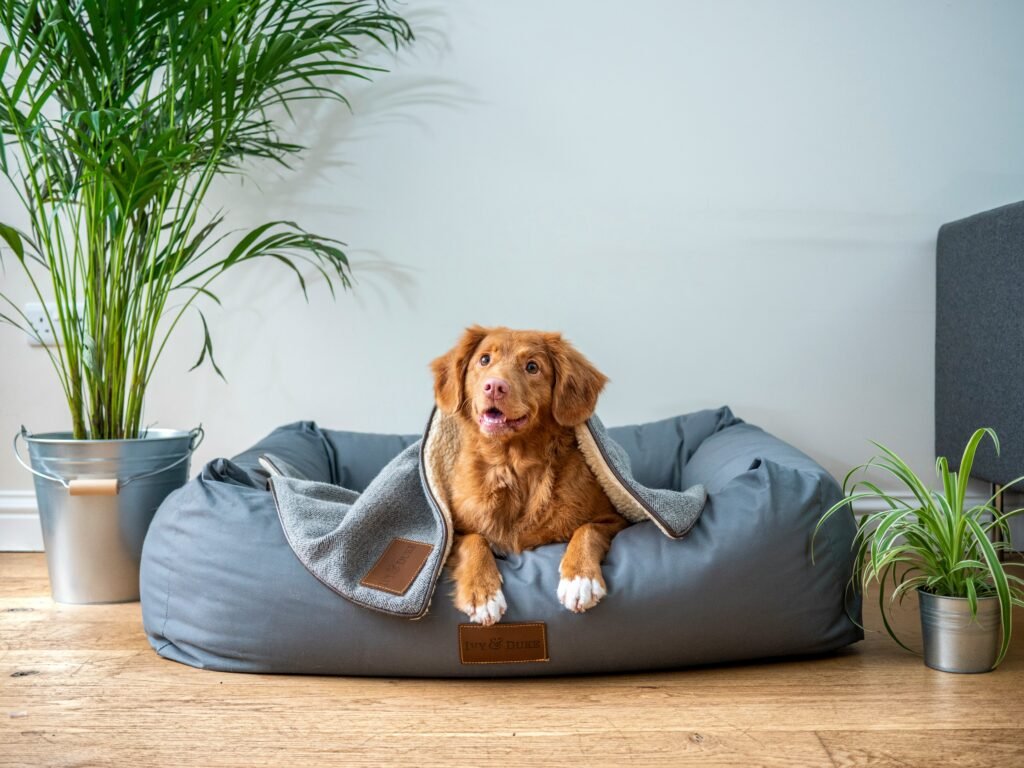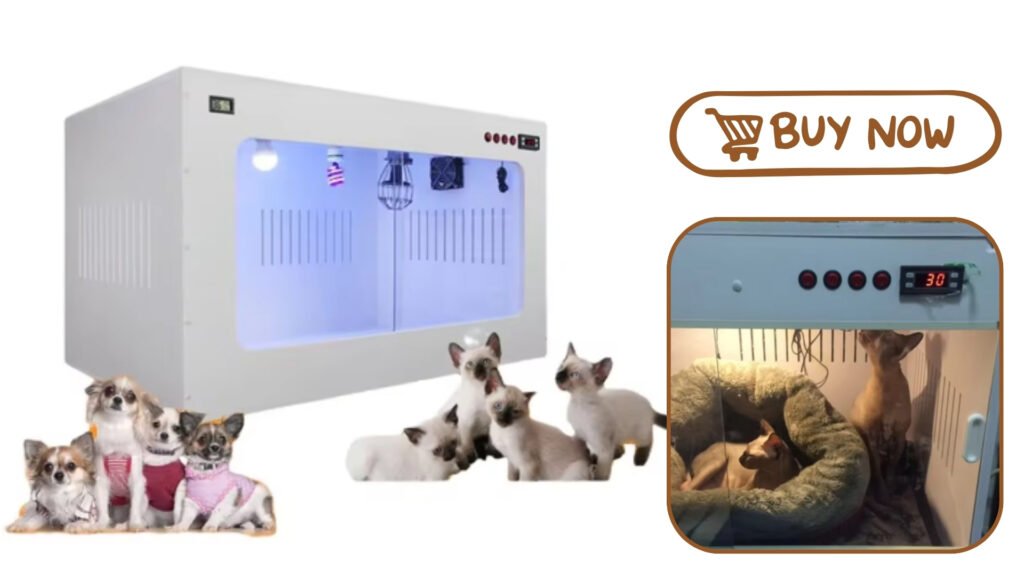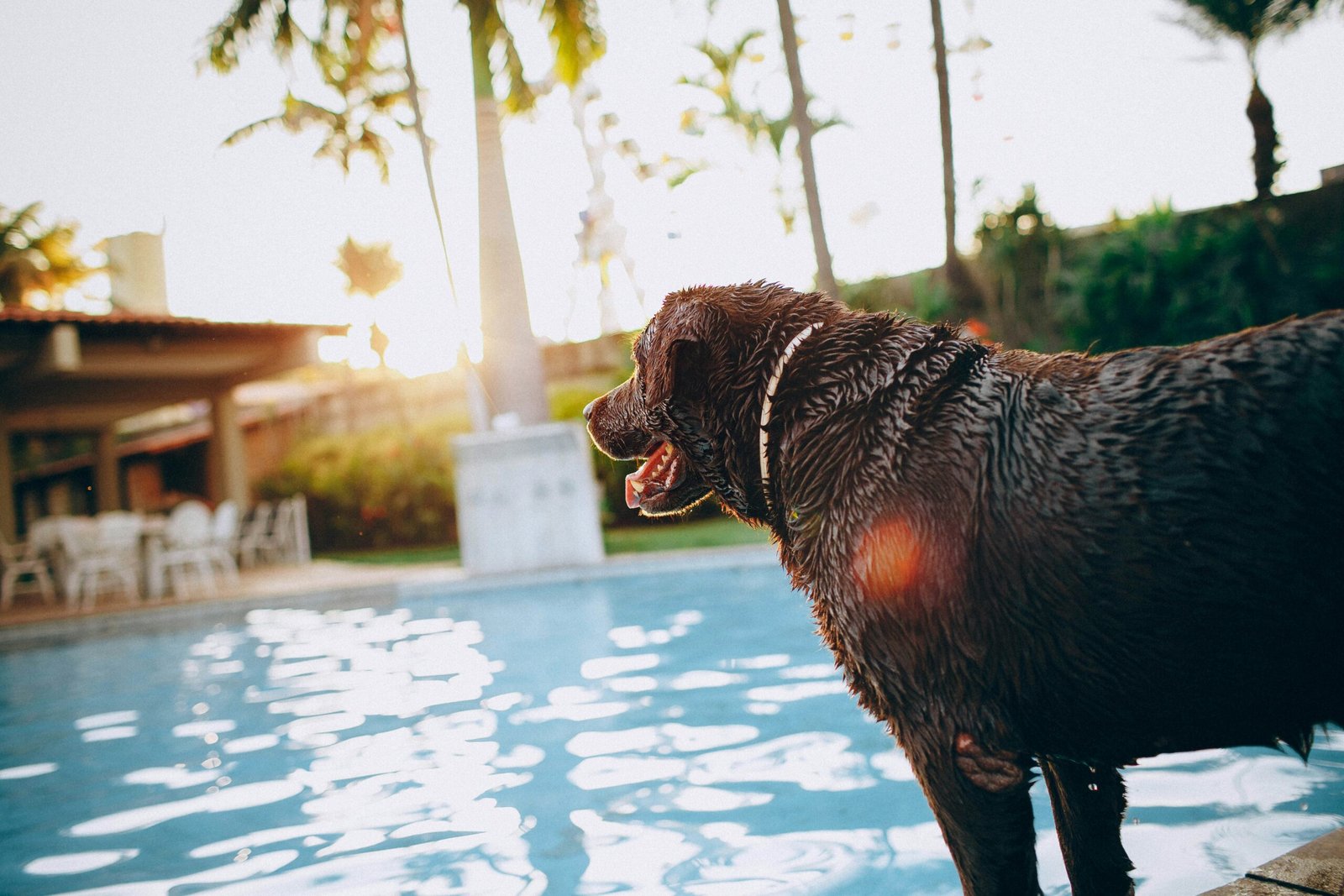Table of Contents
1. What is a Dog Hotel?
Definition and Overview
A dog hotel is a specialized facility designed to provide high-quality care and comfort for dogs in a setting that mirrors the luxuries of a hotel. Unlike standard boarding facilities, dog hotels offer an array of upscale amenities such as plush bedding, gourmet meals, and even spa services. These establishments aim to create a home-away-from-home experience, ensuring that your dog’s stay is enjoyable and stress-free.
Differences Between Dog Hotels and Traditional Kennels
When choosing a place for your dog to stay while you’re away, understanding the distinctions between dog hotels and traditional kennels can help you make an informed decision. Both offer boarding services, but they cater to different needs and preferences. Here’s a comprehensive look at how dog hotels and traditional kennels differ:
Amenities and Accommodations
Dog Hotels: Dog hotels are designed to offer a more luxurious and comfortable experience for pets. These facilities often feature private suites with plush bedding, climate control, and upscale decor. Many dog hotels include additional amenities such as flat-screen TVs, cozy lounging areas, and even spa services like grooming and massages. The focus is on creating a high-end environment that mirrors the comforts of home.
Traditional Kennels: In contrast, traditional kennels typically provide more basic accommodations. Dogs are usually housed in standard-sized kennels or pens, which may be less spacious and less private than the suites found in dog hotels. While some kennels offer comfortable bedding and clean environments, the overall experience is more utilitarian, focusing primarily on the essential needs of the dogs.
Personalized Care
Dog Hotels: One of the standout features of dog hotels is the personalized care they offer. Staff members are often trained to cater to individual needs, providing tailored care based on each dog’s temperament, dietary requirements, and medical needs. This personalized approach ensures that every dog receives the attention and care they need, creating a more customized experience.
Traditional Kennels: Traditional kennels generally offer more standardized care. While staff members are trained to handle various breeds and temperaments, the care is often less individualized compared to dog hotels. Kennels may have set routines and less flexibility in accommodating specific needs, which can result in a more uniform experience for all dogs.
Socialization and Activities
Dog Hotels: Dog hotels frequently emphasize socialization and enrichment activities as part of their services. Many facilities have dedicated play areas where dogs can interact with other pets under the supervision of trained staff. Activities may include group play sessions, agility training, and even organized outings. This focus on socialization helps keep dogs engaged and active during their stay.
Traditional Kennels: While traditional kennels may offer some level of exercise and socialization, the opportunities are often more limited. Kennels typically provide basic outdoor playtime and exercise but may not have the same level of structured activities or social interactions. The focus is usually on ensuring that dogs get adequate exercise rather than providing extensive enrichment.

Staff Qualifications and Training
Dog Hotels: Staff at dog hotels often have specialized training in pet care and behavior, allowing them to handle a wide range of needs and situations. Many dog hotels employ professionals with certifications in pet first aid, behavior management, and grooming. This expertise contributes to a higher level of care and ensures that staff can address any issues that arise.
Traditional Kennels: Staff at traditional kennels are typically trained in basic pet care and handling. While they are skilled in managing dogs and ensuring their well-being, they may not have the same level of specialized training as those at dog hotels. The focus is on maintaining a safe environment and providing essential care rather than offering specialized services.
Pricing and Value
Dog Hotels: The luxurious amenities and personalized care at dog hotels come at a higher price point compared to traditional kennels. However, many pet owners find the cost justified by the added comfort and attention their pets receive. Dog hotels often offer various packages and options that can include additional services like grooming or training, adding value to the overall experience.
Traditional Kennels: Traditional kennels generally have a lower cost structure, reflecting their more basic accommodations and standardized services. While the cost is often more budget-friendly, it may not include the same level of luxury or additional services found in dog hotels. For pet owners seeking a more economical option, traditional kennels can provide adequate care without the frills.
Health and Safety Standards
Dog Hotels: Health and safety are top priorities in dog hotels, which often implement rigorous standards to ensure the well-being of their guests. These facilities may have more advanced health protocols, including frequent cleaning, thorough sanitation, and comprehensive health checks. Emergency procedures are usually well-established, and staff are trained to handle medical issues promptly.
Traditional Kennels: Traditional kennels also prioritize health and safety, but their standards may vary. While most kennels maintain cleanliness and follow basic protocols, the level of detail and frequency of sanitation might be less comprehensive than in dog hotels. Emergency preparedness is generally in place, but the resources and procedures may differ from those of higher-end facilities.
In summary, while both dog hotels and traditional kennels offer valuable boarding services, dog hotels are distinguished by their luxurious accommodations, personalized care, and extensive amenities. Traditional kennels provide reliable and cost-effective care but may lack the high-end features and individualized attention that dog hotels offer. Understanding these differences can help you choose the best option for your dog’s needs and preferences.
2. Benefits of Choosing a Dog Hotel
- Enhanced Comfort and LuxuryDog hotels provide a level of comfort and luxury that can make your pet’s stay feel like a vacation of their own. From plush beds and cozy blankets to climate-controlled environments, every detail is designed with your dog’s comfort in mind. Many facilities also feature upscale decor and spacious rooms, ensuring that your pet enjoys a pleasant and relaxing stay.

- Personalized Care and AttentionWith staff trained in pet care, dog hotels ensure that each dog receives individualized attention and care. The staff members are often experienced in handling various breeds and temperaments, allowing them to cater to each dog’s specific needs. Whether your dog requires medication or special dietary accommodations, the attentive care provided at a dog hotel can make all the difference.
- Socialization OpportunitiesMany dog hotels offer playtime with other dogs, which can enhance your pet’s social skills and provide them with enjoyable interactions. These facilities often have designated play areas where dogs can socialize under the supervision of trained staff. This interaction not only keeps your dog entertained but also helps them develop positive social behaviors.
3. What to Look for in a Dog Hotel
When selecting a dog hotel, it’s essential to thoroughly evaluate various aspects to ensure your pet will have a positive and comfortable experience. Here’s a comprehensive guide on what to watch for:
- Facilities and AmenitiesWhen evaluating a dog hotel, consider the range of facilities and amenities available to ensure they meet your dog’s needs. Start by inspecting the overall cleanliness and maintenance of the facility. A well-kept environment is crucial for your dog’s health and comfort. Look for comfortable and spacious accommodations, such as private suites or spacious kennels, equipped with soft bedding and climate control.Additionally, consider the availability of enrichment activities. Many high-quality dog hotels offer various amenities designed to keep pets entertained and stimulated. These can include play areas with agility equipment, interactive toys, and even swimming pools. Some facilities go a step further by providing specialized services like grooming, massage, and training sessions. Assessing these amenities can help you gauge how well the hotel can cater to your dog’s physical and mental needs.
- Staff Qualifications and TrainingThe experience and training of the staff can greatly impact the quality of care your dog receives during their stay. Look for a dog hotel where the staff is not only passionate about animals but also trained in pet care and behavior management. Many reputable facilities employ certified pet care professionals, including veterinary technicians or pet trainers, who are equipped to handle various breeds and health conditions.Ask about the staff-to-dog ratio to make sure each dog gets the attention and supervision they need. Staff members should be knowledgeable about dog behavior and capable of handling emergencies effectively. During your visit, observe the staff’s interactions with the dogs and ask about their training and qualifications to ensure they meet your standards for care and safety.
- Health and Safety StandardsEnsuring that the dog hotel adheres to high health and safety standards is crucial for your pet’s well-being. A reputable facility will implement stringent cleanliness and sanitation protocols to prevent the spread of illnesses and ensure a hygienic environment. Check for regular cleaning schedules and proper waste disposal practices.Additionally, confirm that the facility requires up-to-date vaccinations for all dogs staying there. This requirement helps prevent the spread of contagious diseases. Ask about the hotel’s protocols for handling medical emergencies, including access to veterinary care and procedures for administering medications. A well-prepared facility will have clear plans in place to address any health concerns that may arise.
By thoroughly evaluating these factors, you can select a dog hotel that offers a high standard of care, ensuring that your pet enjoys a comfortable and enriching stay while you’re away.

4. Preparing Your Dog for a Stay at a Dog Hotel
- Acclimating Your Dog to New EnvironmentsGradually introducing your dog to the idea of a new environment can help ease their transition to the dog hotel. Start by taking your dog on short visits to the facility to familiarize them with the surroundings. This can help reduce anxiety and make them more comfortable when it’s time for their actual stay.
- Essential Items to PackPacking familiar items from home, such as your dog’s favorite toys and bedding, can help make their stay more comfortable. These items provide a sense of security and familiarity, which can be especially comforting in a new environment. Be sure to also include any necessary medications or special dietary foods.
- Communicating Your Dog’s NeedsProviding detailed information about your dog’s habits, diet, and medical needs will ensure they receive the best care. Make a list of your dog’s routines, dietary restrictions, and any behavioral quirks. This information helps the staff tailor their care and ensures that your dog’s specific needs are met.
5. What to Expect During Your Dog’s Stay
Daily Routine and Activities
Most dog hotels structure their days to balance playtime, rest, and meals to keep dogs engaged and comfortable. Typically, the day begins with a morning walk or play session, followed by breakfast and some downtime. Midday activities may include more playtime or interaction with other dogs, depending on the hotel’s offerings. Afternoon sessions might involve individual play, training exercises, or relaxation periods. The evening often features a lighter dinner and some quiet time to wind down before bedtime. By familiarizing yourself with this routine, you can better gauge how your dog will adapt and ensure they are receiving a balanced and enjoyable experience.
Communication with the Hotel
Many dog hotels offer regular updates and communication to keep you informed about your pet’s well-being. This could include daily reports, photos, or even video updates, depending on the facility. Regular communication helps reassure you that your dog is happy and well cared for. Some dog hotels provide a dedicated pet parent portal where you can access updates and track your dog’s activities. Additionally, direct communication channels may be available for any questions or concerns you might have during your dog’s stay. This level of transparency and connection is designed to offer peace of mind and ensure you feel involved in your pet’s experience.
Handling Emergencies
Knowing how the dog hotel handles emergencies can provide peace of mind while your dog is in their care. A reputable dog hotel will have clear procedures in place for managing any health or safety issues that may arise. This includes having a plan for medical emergencies, such as immediate access to a veterinarian or an on-call emergency service. The facility should also have protocols for dealing with accidents or sudden health concerns, including proper documentation and communication with you if any issues occur. Understanding these protocols before your dog’s stay can help you feel confident that your pet will be well-protected and cared for, no matter what happens.
6. Choosing the Right Dog Hotel for Your Pet
- Research and ReviewsConducting thorough research and reading reviews can help you select a reputable dog hotel that aligns with your expectations. Look for feedback from other pet owners and check for any red flags. Positive reviews and recommendations from trusted sources can guide you toward a facility that will provide excellent care for your dog.
- Visiting the FacilityA visit to the dog hotel before booking can give you a firsthand look at the environment and allow you to meet the staff. During your visit, assess the cleanliness of the facility, observe the interactions between staff and dogs, and ask any questions you may have. This visit can help you determine if the hotel meets your standards and if it’s the right fit for your pet.
- Trusting Your InstinctsTrusting your instincts and assessing how comfortable you feel about the facility can be an important factor in your decision-making process. If something doesn’t sit right, feel free to explore different options. Choosing a dog hotel where you feel confident and reassured will ensure a positive experience for both you and your dog.
A Positive Experience for Your Furry Friend
Finding the perfect dog hotel involves careful consideration and planning, but the right choice can provide your furry friend with a delightful and stress-free experience while you’re away. By focusing on the comfort, care, and amenities offered, you can ensure that your pet enjoys a stay that’s as enjoyable as it is safe.
FAQ
What is the difference between a dog hotel and a dog daycare?While both dog hotels and daycares offer care for dogs, dog hotels provide overnight accommodations and often more luxurious amenities. Daycares typically focus on daytime activities and socialization, without offering overnight stays. read mor
Can my dog stay at a dog hotel if they have special needs?Many dog hotels are equipped to handle dogs with special needs, but it’s essential to discuss your dog’s requirements with the hotel in advance. Ensure that the facility can accommodate any medical conditions, dietary restrictions, or other specific needs. read mor
How far in advance should I book a stay at a dog hotel?It’s generally recommended to book your dog’s stay several weeks in advance to ensure availability and secure your preferred dates. During peak travel times or holidays, it may be necessary to book even earlier to guarantee a spot. read more




